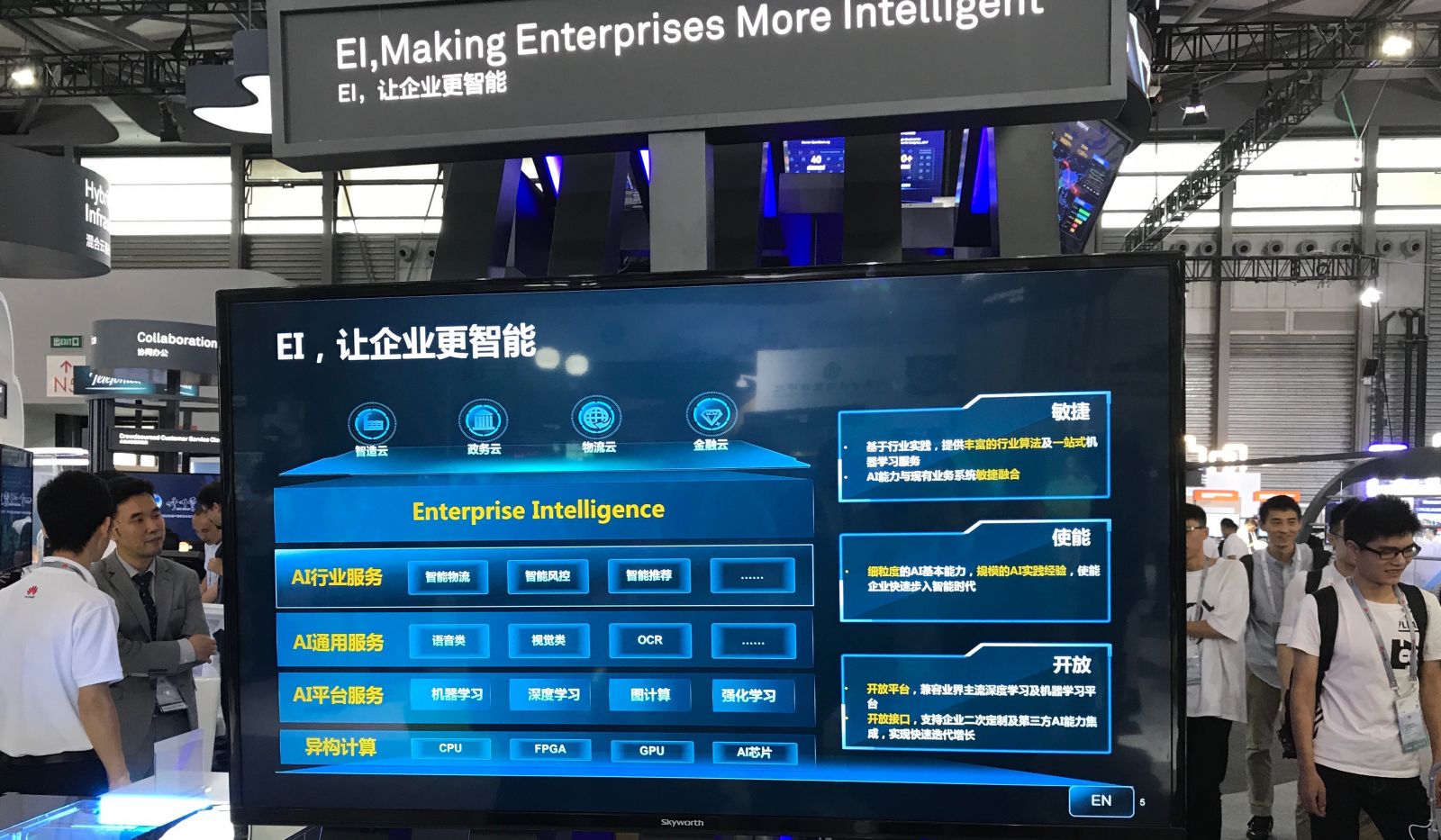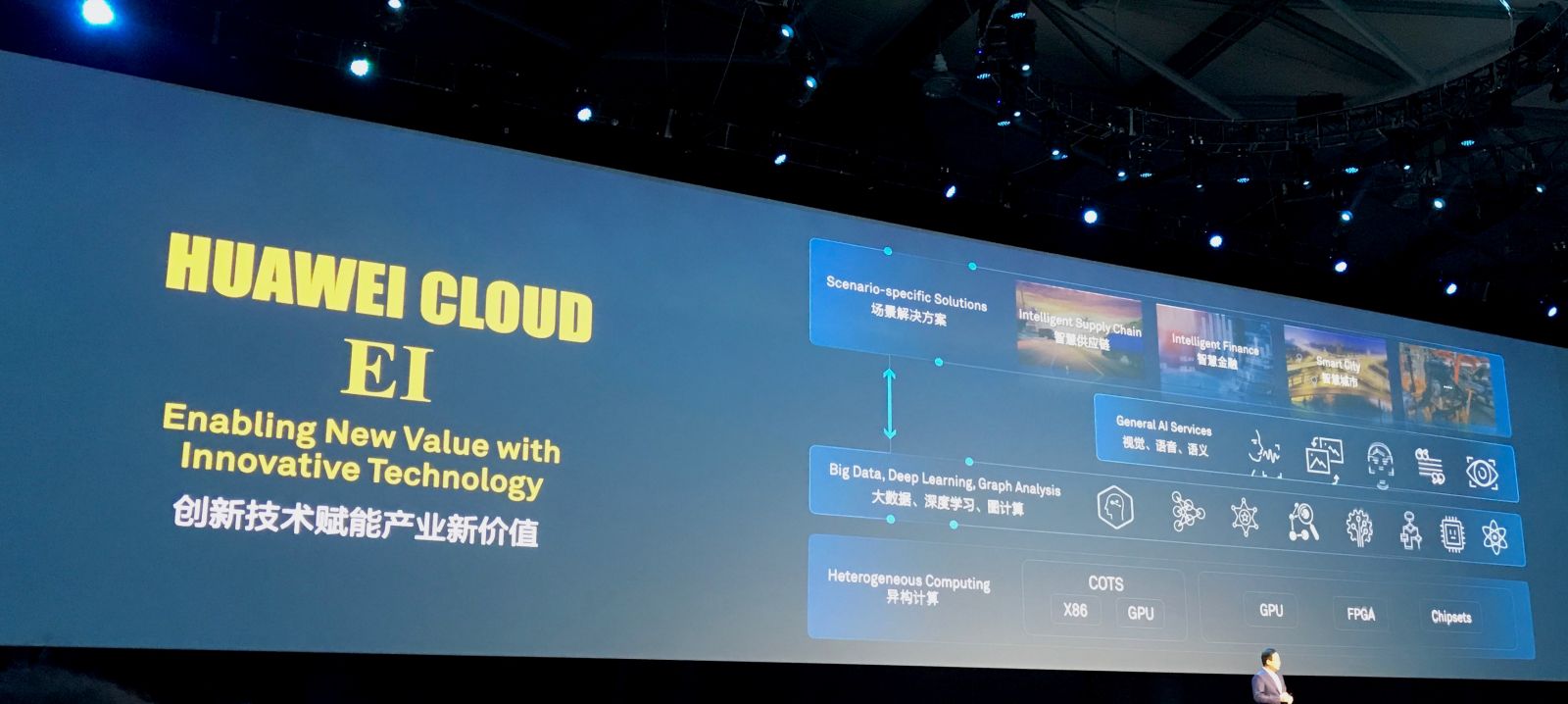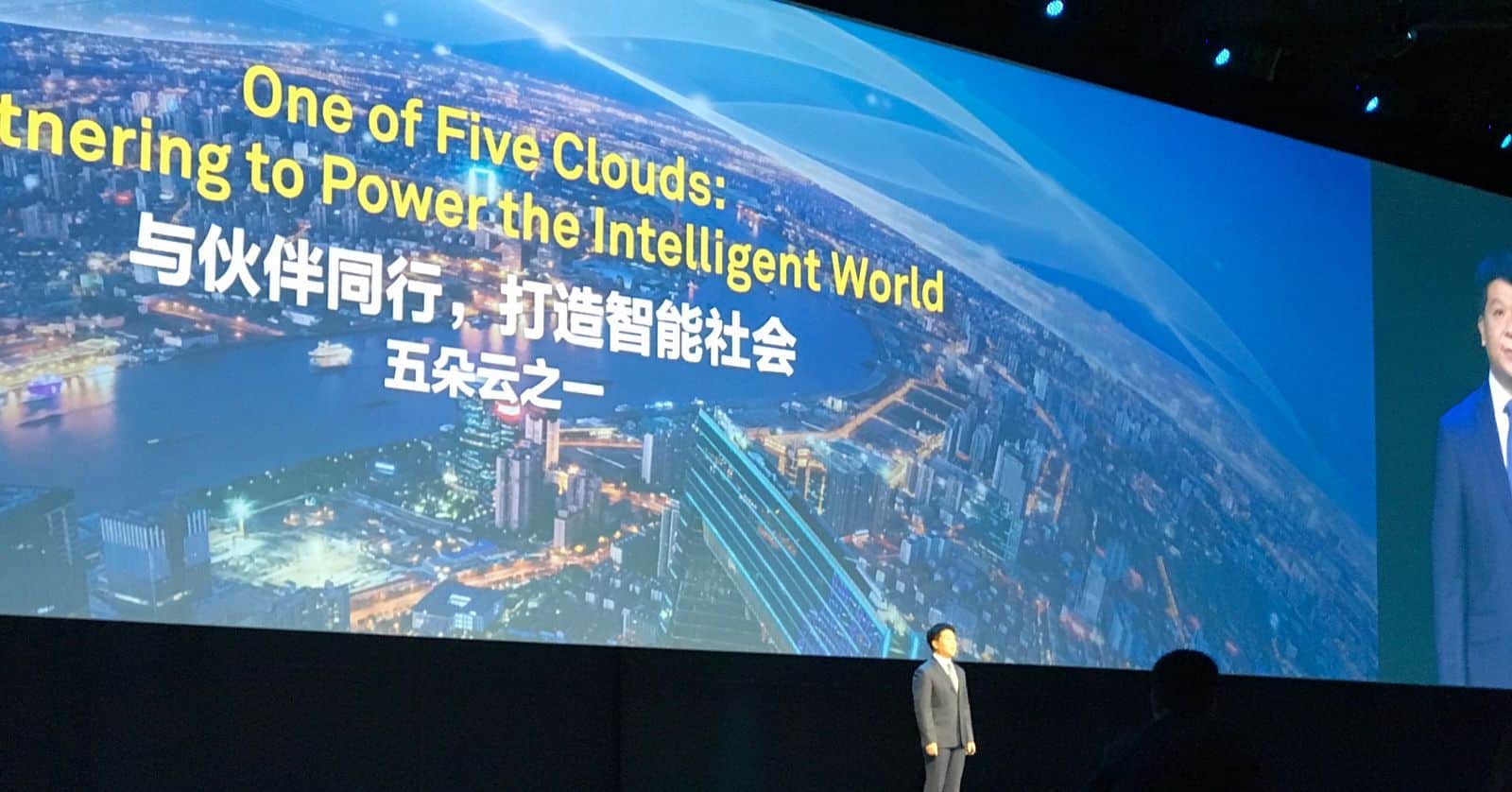 At Huawei Connect 2017 in Shanghai, Huawei unveiled its new solution for enterprise markets, the Enterprise Intelligence (EI) solution. EI will consists of three types of intelligent cloud services as well as a heterogeneous computing platform. The main thrust behind EI is moving past the digital transformation and begin gaining value from it.
At Huawei Connect 2017 in Shanghai, Huawei unveiled its new solution for enterprise markets, the Enterprise Intelligence (EI) solution. EI will consists of three types of intelligent cloud services as well as a heterogeneous computing platform. The main thrust behind EI is moving past the digital transformation and begin gaining value from it.
At Huawei Connect 2017 in Shanghai, Huawei unveiled its new solution for enterprise markets, the Enterprise Intelligence (EI) solution. EI will consists of three types of intelligent cloud services as well as a heterogeneous computing platform. The main thrust behind EI is moving past the digital transformation and begin gaining value from it.

Digital Transformation is the buzzword (or words in this case) that has been used ad nauseam. While it is true that several organizations are in the throes of this transformation, many have moved beyond the transformation phase and are ready to start creating new value. In order to facilitate this, Huawei is taking its cloud technologies and adding Artificial Intelligence (AI) techniques. This techniques range from basic AI needs to more sophisticated aimed at satisfying all aspects of small to large enterprises including the supply chain, manufacturing, and management systems.
Features include:
- Basic platform services: including machine learning, deep learning, and graph analysis platforms, alongside AI training, reasoning, and indexing platforms.
- General AI services: including API services such as visual recognition API, voice recognition API, and natural language API.
- Scenario-specific solutions: Huawei works with partners to create solutions for AI, cloud computing, and IoT scenarios in order to address industry needs.
- Heterogeneous computing platform: Huawei has years of experience in system engineering, chipset, hardware, and underlying software and is able to offer the three types of intelligent cloud services, uncovering the true beauty of algorithms with incredible computing power.

Huawei has taken EI and applied it to its own business. For its supply chain, the company has been able to optimize most aspects with smooth data flows, from supply forecasting to logistics, and from warehousing to customs clearance, transit, and signing goods receipts. Through EI use in the supply chain, it has created intelligent logistics. An example of this is intelligent packing, offering packing solutions that depend on the characteristics of the goods. EI also enables a 3D view of each container, improving the efficiency of overall container usage by 6%.
Another example of EI would be at the customs clearance stage. EI can be used for compliance analysis, identifying abnormal data based on historical data and exchange rate changes, and issue warnings in the event of any anomalies. Using EI results in clearing customs on the first try and means there will be no need to overstock or run out of stock due to complications in customs. The next step beyond clearing customs is typically warehousing where EI can help to design the best solutions to place and categorize goods and optimize paths of choosing goods and their storage spaces. By using EI, Huawei itself has seen a 10% improvement in its warehousing efficiency.

EI is built on the technology Huawei has been building in its cloud. Cloud is becoming a massive part of Huawei. Since forming its Cloud Business Unit in March, the company has seen a 238% increase in its user base, released an additional 40 cloud services bringing the total to 85, and adding over 4,500 new features. Huawei has been investing heavily in the cloud, developing new applications while making it more secure and providing better services to its customers. The company is continuing to focus on expanding its global cloud service and likens its strategy along the lines of airline alliances, such as the star alliance. Huawei predicts that there will be five major clouds in the world (a bit of a play on Thomas Watson predication that there would be a world market for five computers in 1968). With the direction the company is pushing in, it intends to build one of these major clouds while working with the others.
Huawei Cloud (Chinese site)
Sign up for the StorageReview newsletter
